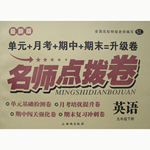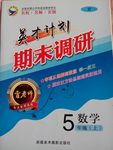题目内容
My parents have always raised me to be very money-conscious, so I guess, in that sense, they are rather untraditional. Since I was a little girl, if I ever wanted to purchase anything, my parents would sternly(严厉地) remind me of the value of every cent, prompting me to spend my pocket money only when necessary. My mom actually came up with a system that we strictly abide (遵守)by in regards to money-spending. She gives me a certain amount of allowance(津贴) every month, and whenever I buy anything with my accumulated(积聚) money, I keep track of my receipts and record it in a little notebook, essentially a tiny version of my mom’s own accounting booklet.
Being in control of my own money has really taught me to be careful in how I spend my money, giving me a sense of responsibility and ownership over it.
As for earning money, aside from my allowance, my parents never really encouraged me to go out and find a job at typical American occupation locales(现场), such as restaurants or clothing stores. Instead, they would prefer that I spend my time focusing on my schoolwork, which I guess is where my parents become more traditional. Yet I still earn money here and there in little jobs, such as teaching students at my school, and of course, writing for the paper.
Though I have several friends already working, I am pretty happy with my current situation. I am able to focus on my studies, all the while earning quite a bit of money, and also learning monetary (货币的) skills that are crucial to survival in the real world, and for that I am grateful.
41. What happened when the author bought anything with her accumulated money?
A. She asked her parents to give her a large amount.
B. She controlled her own money without using it.
C. She kept track of her receipts and recorded it in a little notebook.
D. She wanted to go out and find a job at typical American occupation locales
42. We can know that the author from the passage___________.
A. loves a little notebook B. likes spending money
C. needs working at restaurants D. satisfies the current situation
43. The word “crucial” underlined in Paragraph 2 means _____________.
A. dangerous B. important C. impossible D. deadly
44. The purpose of writing the passage is to help people ___________.
A. learn to be money-conscious B. increase their savings
C. manage their work well D. test their power of self-control41.C。事实细节题。根据文章第一段最后两句She gives me a certain amount of allowance every month, and whenever I buy anything…, I keep track of my receipts and record it in a little notebook..判断。
42.D。判断推理题。根据文章最后一段…I am pretty happy with my current situation.判断。
43.B。词语猜测题。根据文章最后一段此词的下文…to survival in the real world, and for that I am grateful.可以得出结论:monetary skills是“重要的”,而不可能是dangerous(危险的),impossible(不可能的),deadly(致死的)。
44. A。主旨大意题。根据文章的第一段的第一句My parents have always raised me to be very money-conscious到第二段的Being in control of my own money..再到最后一段的…all the while earning quite a bit of money, and also learning monetary skills…综合判断。

 名师点拨卷系列答案
名师点拨卷系列答案 英才计划期末调研系列答案
英才计划期末调研系列答案As a boy growing up in India,I had longed to travel abroad. I used to listen to the stories my father would tell me about his stay in Canada and tours to Europe in the 1970s,with great interest.
My big moment finally came in the summer of 1998 when I was able to accompany my parents to Europe,where my father was to attend a meeting. We planned to travel to Belgium,Netherlands and West Germany.
I have vivid memories even today of going to Mumbai airport at night all excited about finally going abroad. I had heard several great things about Lufthansa till then but now I finally got to experience them first hand,during the flight to Frankfurt. We flew business class and even today I can remember the excellent service by the Lufthansa crew. The flight was really smooth and thoroughly enjoyable,even for someone like me,who is otherwise scared of flying.
After spending almost two weeks in Europe,we took the Lufthansa airport express from Dusseldorf to Frankfurt airport,for our return flight. What a journey that was! All along the Rhine (莱茵河),it was simply an unforgettable experience. I was in a sombre mood on the flight back to Mumbai as it marked the end of a wonderful vacation,but the Lufthansa crew members were able to change it into a most enjoyable experience yet again,with the quality of their service.
Being the first airline to take me overseas,Lufthansa will always hold a special place in my heart. Even today,I continue to enjoy flights on Lufthansa and simply cannot dream of choosing any other airline. Flying,in general,for me,has always been an ordeal (terrible and painful experience).Flying on Lufthansa,however,is something I always have and always will look forward to.
【小题1】What made the author so interested in traveling abroad?
| A.Growing up in India. |
| B.Once staying in Canada. |
| C.Once traveling to Canada with his father. |
| D.His father's stories about his traveling experiences. |
| A.The author traveled with one of his parents. |
| B.Both their going and return are by air. |
| C.They traveled in spring that year. |
| D.They stayed in Europe for nearly two months. |
| A.a city in India | B.a city in Europe |
| C.an airline company | D.a travel agency |
| A.happy | B.sad | C.angry | D.enjoyable |
Parents and kids today dress alike, listen to the same music, and are friends. Is this a good thing? Sometimes, when Mr. Ballmer and his 16-year-old daughter, Elizabeth, listen to rock music together and talk about interests both enjoy, such as pop culture, he remembers his more distant relationship with his parents when he was a teenager.
“I would never have said to my mom, ‘Hey, the new Weezer album is really great. How do you like it?’” says Ballmer. “There was just a complete gap in taste.”
Music was not the only gulf. From clothing and hairstyles to activities and expectations, earlier generations of parents and children often appeared to move in separate orbits.
Today, the generation gap has not disappeared, but it is getting narrow in many families. Conversations on subjects such as sex and drugs would not have taken place a generation ago. Now they are comfortable and common. And parent—child activities, from shopping to sports, involve a feeling of trust and friendship that can continue int0 adulthood.
No wonder greeting cards today carry the message, “To my mother, my best friend.”
But family experts warn that the new equality can also result in less respect for parents. “There’s still a lot of strictness and authority on the part of parents out there, but there is a change happening,” says Kerrie, a psychology professor at Lebanon Valley College. “In the middle of that change, there is a lot of confusion among parents.”
Family researchers offer a variety of reasons for these evolving roles and attitudes. They see the 1960s as a turning point. Great cultural changes led to more open communication and a more democratic process that encourages everyone to have a say.
“My parents were on the ‘before’ side of that change, but today’s parents, the 40-year-olds, were on the ‘after’ side,” explains Mr. Ballmer. “It’s not something easily accomplished by parents these days, because life is more difficult to understand or deal with, but sharing interests does make it more fun to be a parent now.”
【小题1】The underlined word gulf in Para.3 most probably means _________.
| A.interest | B.distance | C.difference | D.separation |
| A.Parents help their children develop interests in more activities. |
| B.Parents put more trust in their children’s abilities. |
| C.Parents and children talk more about sex and drugs. |
| D.Parents share more interests with their children. |
| A.more confusion among parents | B.new equality between parents and children |
| C.1ess respect for parents from children | |
| D.more strictness and authority on the part of parents |
| A.follow the trend of the change | B.can set a limit to the change |
| C.fail to take the change seriously | D.have little difficulty adjusting to the change |
| A.describe the difficulties today’s parents have met with |
| B.discuss the development of the parent—child relationship |
| C.suggest the ways to handle the parent—child relationship |
| D.compare today’s parent—child relationship with that in the past |